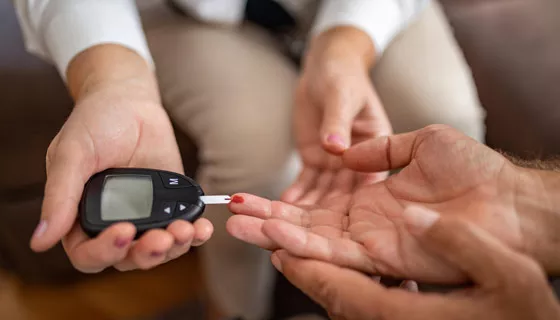People with obesity who underwent weight-loss surgery showed better control of their high blood pressure over a 1-to-5 year period compared to those who managed their condition with medications and lifestyle changes. This finding comes from preliminary research set to be presented at the American Heart Association’s Hypertension Scientific Sessions 2024, taking place in Chicago from September 5-8, 2024. The conference focuses on recent advances in research related to high blood pressure, cardiac and kidney disease, stroke, obesity, and genetics.
The study analyzed data from 18 randomized controlled trials involving over 1,300 participants. The results confirm previous research indicating that bariatric surgery is an effective long-term solution for obesity-related hypertension. According to the lead author, Dr. Sneha Annie Sebastian, bariatric surgery not only helps in weight loss but also reduces the risk of cardiovascular disease by improving blood pressure control.
Bariatric surgery works by reducing the size of the stomach, helping individuals feel full after consuming less food. It may also involve altering the digestive system to absorb fewer calories and nutrients.
The 2022 guidelines from the American Society for Metabolic and Bariatric Surgery recommend this surgery for individuals with a body mass index (BMI) of 35 kg/m² or higher, regardless of other health issues.
In the current analysis, participants were randomly assigned to receive either bariatric surgery or non-surgical interventions, such as medications and lifestyle changes. After an average follow-up of 1 to 5 years, researchers found significant differences between the two groups:
Those who had weight-loss surgery were 2.77 times more likely to lower their blood pressure to below 140/90 mmHg, achieving what is defined as blood pressure remission without needing medication.
Participants who underwent surgery were 7.1 times more likely to achieve blood pressure control, defined as a reading below 130/80 mmHg, while significantly reducing their use of blood pressure medications.
On average, those who had surgery lowered their systolic blood pressure by 3.67 mmHg compared to those in the control group.
Dr. Sebastian emphasized the need for future research to focus on larger randomized controlled trials with long-term follow-ups, specifically examining hypertension outcomes. She noted that many existing studies primarily focus on diabetes outcomes. Additionally, it is crucial to evaluate the effectiveness and cost-efficiency of various bariatric procedures for different patient profiles.
Despite the promising results, the analysis has limitations. Variations among the trials in participant characteristics, surgical techniques, and obesity diagnoses may affect the findings’ generalizability. Only four of the 18 studies considered high blood pressure as the primary outcome, which could limit the reproducibility of the results.
Dr. Michael E. Hall, chair of the writing group for the American Heart Association’s 2021 scientific statement on weight-loss strategies, pointed out the significant impact of weight loss on blood pressure control. He noted, however, that there is limited data on the effects of surgical weight loss specifically targeting hypertension remission.
He also called for randomized clinical studies to compare bariatric surgery with newer weight-loss medications. This comparison would help determine which patients are best suited for specific weight-loss strategies. Overall, Hall concluded that bariatric surgery remains an effective and sustainable treatment option for hypertension related to obesity.


